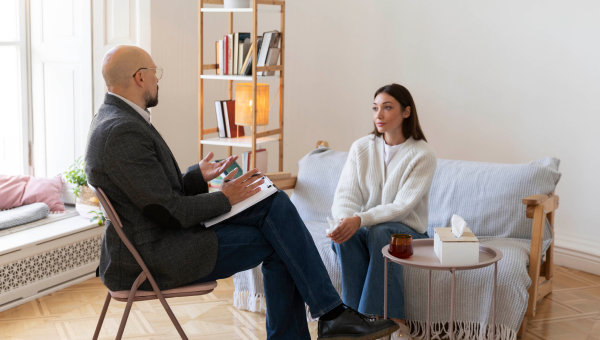The Role of Therapy in Relationship Issues
Oct 06, 2022
Relationships are a fundamental part of human life, providing support, love, and connection. However, they can also be a source of stress and conflict. Therapy plays a crucial role in addressing relationship issues by improving communication, resolving conflicts, and enhancing emotional intimacy.
Common Relationship Issues
- Communication Problems: Misunderstandings, lack of effective communication, and avoidance of difficult conversations.
- Trust Issues: Infidelity, dishonesty, and breaches of trust can severely impact relationships.
- Conflict Resolution: Inability to resolve disagreements healthily and constructively.
- Emotional Distance: Feeling disconnected or emotionally unavailable to one another.
- Financial Strain: Disagreements about money management and financial stress.
- Parenting Differences: Conflicting parenting styles and disagreements about child-rearing.
Impact on Mental Health
Relationship issues can lead to significant mental health problems, including anxiety, depression, and low self-esteem. Chronic relationship stress can also contribute to physical health problems like heart disease and weakened immune function.
The Role of Therapy:
1. Couples Therapy:
- Cognitive Behavioral Therapy (CBT): Helps couples identify and change negative thought patterns and behaviors.
- Emotionally Focused Therapy (EFT): Focuses on improving emotional bonds and attachment between partners.
- Gottman Method: Uses research-based techniques to strengthen relationships through improving communication and conflict resolution skills.
2. Family Therapy:
- Structural Family Therapy: Focuses on understanding and addressing family dynamics and structures that contribute to conflicts.
- Bowen Family Systems Theory: Explores family roles and patterns to help resolve issues and improve relationships.
3. Individual Therapy:
- Psychodynamic Therapy: Helps individuals understand how past experiences influence current relationship behaviors.
- Humanistic Therapy: Focuses on personal growth and self-acceptance to improve relationships.
Techniques Used in Therapy
- Active Listening: Teaching partners to listen actively and empathetically to each other.
- Communication Skills: Improving verbal and non-verbal communication skills.
- Conflict Resolution: Developing healthy ways to resolve conflicts and disagreements.
- Emotional Regulation: Helping individuals manage their emotions effectively.
- Problem-Solving Skills: Equipping couples with strategies to address and solve problems collaboratively.
Benefits of Therapy
- Improved Communication: Therapy helps partners learn to communicate more effectively, reducing misunderstandings and conflicts.
- Enhanced Understanding: Couples gain insights into each other's perspectives and feelings, fostering empathy and connection.
- Stronger Emotional Bonds: Therapy can help rebuild trust and emotional intimacy in relationships.
- Better Conflict Resolution: Couples learn healthy ways to manage and resolve conflicts, leading to more harmonious relationships.
- Increased Satisfaction: Therapy can lead to greater relationship satisfaction and overall well-being.
Indian Context
In India, relationship issues are often influenced by cultural norms, societal expectations, and family dynamics. Therapy is becoming more accepted as a valuable tool for addressing relationship problems. Increasing awareness and access to mental health services are essential for improving relationship health in the Indian population.
Conclusion
Therapy plays a vital role in addressing and resolving relationship issues. By improving communication, enhancing emotional bonds, and developing healthy conflict resolution skills, therapy can significantly improve the quality of relationships and overall mental health. Seeking professional help is a positive step towards building stronger, healthier relationships.
References:
- National Institute of Mental Health (NIMH) - Psychotherapies
- American Psychological Association - Couples Therapy
- World Health Organization - Mental Health
- Psychology Today - Relationship Counseling
- Indian Journal of Psychiatry









